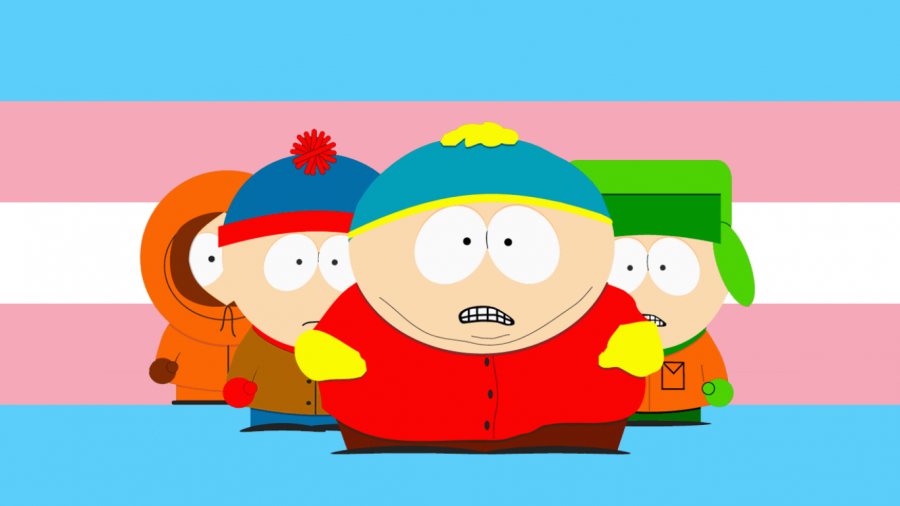When ‘South Park’ fails at satire
Wikimedia/Pngimg.com/Kyla Clark
The satire of “South Park” is taken as gospel, making it problematic when hey discuss issues in a crass fashion.
May 14, 2020
Considered a humorous darling of public television, it can be hard to critique the message every “South Park” episode propagates.
“South Park” is an American animated series created in 1997 by Trey Parker and Matt Stone. The series has been heralded as a satirical artwork of postmodernism, covering nearly every topic of current conversation. This is done using cutout-style animation and script writing, all done within a week or less. It started off with two viral short animations, which led to the over 300 episode series.
According to Men’s Health, “While the early seasons of the show followed some pretty raunchy adventures of a couple 8-year-old boys and their crazy Colorado town, the show really became built for eternity when it started lampooning current events.”
Since it is satire, it has a good track record of making fun of many news incidents considered strange or ridiculous. The recent 23rd season discusses topics of Chinese censorship, anti-vaccination and plant-based foods. South Park also makes a statement about transgender athletes, shown in the episode “Board Girls.” The description of the main plot is that Strong Woman, significant other to PC Principal, enters the annual Strong Woman competition. She typically wins, but a new transgender athlete Heather Swanson, beats her every time. The trans athlete turns out to be Strong Woman’s angry ex-boyfriend trying to ruin her reputation after a bad break-up. Swanson ends up losing to South Park Elementary’s Board Girls club in a series of competitive board games. The episode ends on the note that nuance needs to be given to complex topics.
“It’s a conversation that’s rooted in bigotry but masked as actual concern for women’s safety, kind of how this episode is masked in what’s supposed to be a desire for nuance without bringing any,” said Stephanie Williams of the AVClub.
This episode highlights a large problem for “South Park,” anti-progressivism. Not in the political sense, but in the way it topples new complex social ideas. This is due to the egocentrism in South Park as this episode, like many, is written and directed by Trey Parker. The only other person usually involved is Matt Stone, leading to an echo chamber that lacks diverse opinions. An older South Park season 10 episode “ManBearPig” is very similar as the titular character is a graphic metaphor for climate change. ManBearPig is imaginary and created by Al Gore, referencing Gore’s film “An Inconvenient Truth”. They later apologized for their climate change denial with two episodes featuring Gore stopping ManBearPig.
According to the Guardian, “South Park has demonstrated more humility, while managing to stay funny. It acknowledged a major misstep without any pressure to do so and found a way to apologize while remaining on brand.”
The problem in both these cases is that South Park is trying to make a serious judgement call in both episodes. In “Board Girls” the message is supposed to convey the hardships of nuance with political correctness in our society. Yet they use a character made to look like wrestler Randy Savage with evil intent. If the ManBearPig controversy and the ending of Board Girls signifies anything, perhaps in the future they can talk about this with the nuance they ask for. Hopefully, in years time, South Park creators can once again look back and ‘get cereal.’







